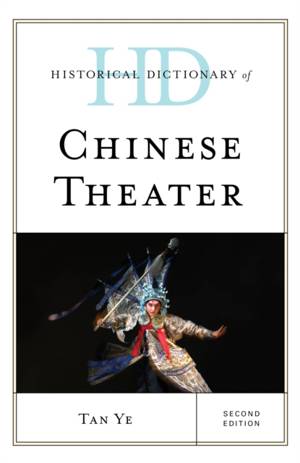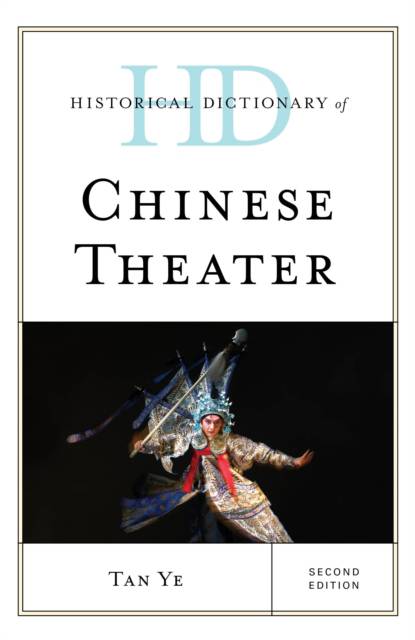
Bedankt voor het vertrouwen het afgelopen jaar! Om jou te bedanken bieden we GRATIS verzending (in België) aan op alles gedurende de hele maand januari.
- Afhalen na 1 uur in een winkel met voorraad
- In januari gratis thuislevering in België
- Ruim aanbod met 7 miljoen producten
Bedankt voor het vertrouwen het afgelopen jaar! Om jou te bedanken bieden we GRATIS verzending (in België) aan op alles gedurende de hele maand januari.
- Afhalen na 1 uur in een winkel met voorraad
- In januari gratis thuislevering in België
- Ruim aanbod met 7 miljoen producten
Zoeken
Omschrijving
There is a sense of timelessness in the Chinese theater: ever since its maturation, its format has not changed in any significant way. Chinese Theater matured into its final format in the 13th century and flourished during the Yuan, Ming, and Qing Dynasties. It is a unique, exclusive, and self-sufficient system, whose evolution has received little influence from the West and whose influence on Western theaters has been minimal and often misinterpreted. It is essentially a performer's theater; the actors attract the audience with splendid performances perfected through many years of rigorous training. This second edition of Historical Dictionary of Chinese Theater contains a chronology, an introduction, and an extensive bibliography. The dictionary section has over 1,500 cross-referenced entries on performers, directors, producers, designers, actors, theaters, dynasties, and emperors. This book is an excellent resource for students, researchers, and anyone wanting to know more about Chinese theater.
Specificaties
Betrokkenen
- Auteur(s):
- Uitgeverij:
Inhoud
- Aantal bladzijden:
- 560
- Taal:
- Engels
- Reeks:
Eigenschappen
- Productcode (EAN):
- 9781538120637
- Verschijningsdatum:
- 4/03/2020
- Uitvoering:
- Hardcover
- Formaat:
- Genaaid
- Afmetingen:
- 152 mm x 229 mm
- Gewicht:
- 984 g

Alleen bij Standaard Boekhandel
+ 445 punten op je klantenkaart van Standaard Boekhandel
Beoordelingen
We publiceren alleen reviews die voldoen aan de voorwaarden voor reviews. Bekijk onze voorwaarden voor reviews.









